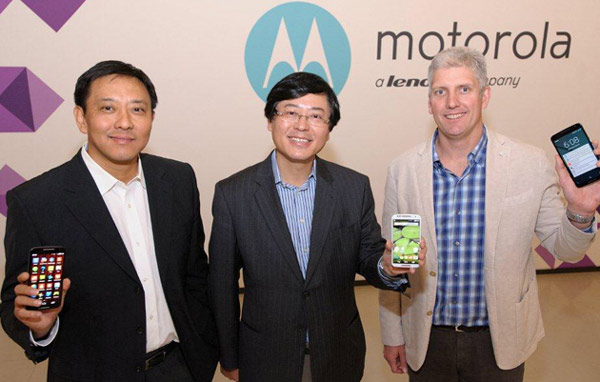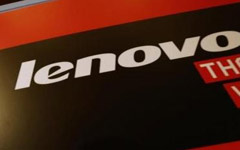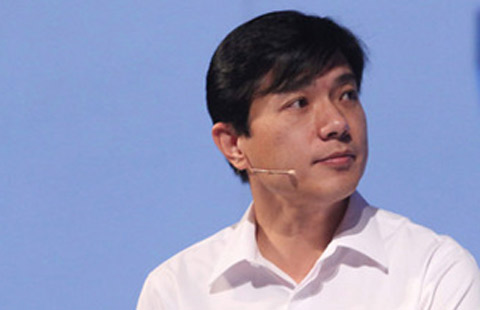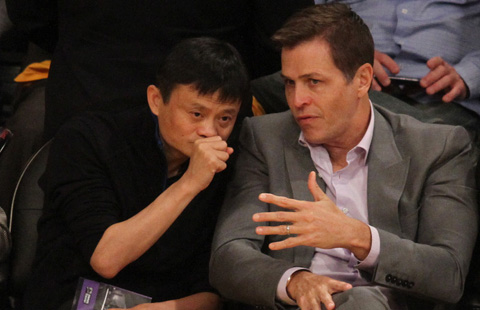'Hello Moto' set to return China market
By Liu Zheng (chinadaily.com.cn) Updated: 2014-10-31 15:55
|
 |
|
The new chairman of the Motorola management board Liu Jun (Left), and Yang Yuanqing (middle), chairman and CEO of Lenovo and Rick Osterloh, president and chief operating officer of Motorola hold Lenovo smartphones at a press conference in Chicago, Oct 30, 2014. [Provided to chinadaily.com.cn] |
With decades of brand awareness already in the market, executives from Motorola and Lenovo are optimistic about the Motorola's return to China even though the plans aren't clear.
Lenovo, together Google announced on Thursday that Lenovo's $2.9 billion acquisition of Motorola Mobility from Google was complete.
 |
| Lenovo wraps up purchase of Motorola phone unit |
 |
| Acquisition of Motorola to fuel sales of smartphones |
After finalizing its acquisition of the Motorola brand, company portfolio of smartphones, as well as future Motorola product roadmaps, the world's largest PC maker is now third in the world in smartphone market share.
Lenovo has previously stated that it expects to make Motorola profitable again in four to six quarters.
According to Rick Osterloh, president and chief operating officer of Motorola, thanks to Google's prior acquisition, the company has gone through a successful transformation. Osterloh said that despite the good characteristics of Google as an Internet consumer services provider, its ability to manage hardware products is limited.
"We are eager to expand to other parts of the world, including return to China market, it's obvious that joining the Lenovo family will fulfill this dream," said Osterloh.
"As part of our acquisition deal, both Moto 360 and Nexus series, which originally, belong to Motorola Mobility, will be joining Lenovo's production line," said Liu Jun, the new chairman the Motorola management board, and executive vice president of Lenovo's Mobile Business Group. "Meanwhile, we'll work closely with Google as its strategic partner and supplier to develop next generation products.”
Beyond smartphones, the Moto 360 wearable smartwatch that captured consumer attention earlier this year will also be brought into China.
"Although the watch has not officially launched in China, 6 percent to 7 percent of the products out there have been activated in the nation," said Yang Yuanqing, chairman and CEO of Lenovo. "It has been the largest number except for the domestic market back in the US."
Yang said that through his talks with China's top three mobile carriers, China Mobile, China Telecom and China Unicom, consumers are still considering the Motorola brand when they purchase their smartphones.
He says that the timetable and roadmap to move Motorola back into the Chinese market is something that still needs to be discussed between Lenovo and Motorola. Yang says that the company will reveal a development roadmap for China in the upcoming weeks.
Advisory firm International Data Corporation's analysis shows that by utilizing Lenovo's marketing system and sales network in China, Lenovo can help Motorola promote products and collect consumer feedback.
"With the complementary strengths of our two companies, we expect to sell more than 100 million mobile devices this year – including smartphones and tablets – by leveraging the Lenovo brand's leading market position in China, our shared momentum in emerging markets, and Motorola's strong foothold in mature markets like the US," Liu said.
Motorola launched a series of global layoffs in 2012. About 1000 R&D and technical Chinese employees were eliminated in March of last year.
- R&D spending grows in China
- Halloween promotions abound in China
- Germany welcomes Chinese investments in high-tech industry
- Peony economy blossoms in Shandong
- 'Hello Moto' set to return China market
- China province orders 30% of vehicles off roads for APEC
- US to seek broader cooperation during Obama's China visit
- Dutch trade mission secures agreements worth half billion euros in China
















